CFR is a not-for-profit company that helps communities, councils and charities that want to set up clean energy businesses. Since we set up in 2012, we’ve helped to develop and finance community owned solar projects with a capital value of over £60m. We look after 50 megawatts of community owned solar projects across seven diverse localities, generating enough energy to power 13,500 homes. These projects are projected to generate £20m of surplus income over their lifetimes to support Net Zero transition and community projects in their localities.
A key part of our work is about supporting communities with the financing needed to set up a largescale community energy project. It can cost well over £100,000 of risk investment, even to set up a project, secure planning, land and grid connection agreements and manage the transaction costs of building or purchasing a solar farm. That’s before any capital spend building it.
The projects are all governed by local volunteer directors. Their operating business model is to generate energy which they sell to the grid and earn a revenue that is used to cover the running and finance costs. Any surplus income after operating finance costs and building up sufficient reserves is used by that company to support its community purpose.
Typically, schemes are funded by a combination of long-term bank debt, community investment and in some cases a bridge loan that fills the gap in between. SASC has provided our projects both bridging loans and long-term debt depending on what the project has required.
For this sort of non-standard commercial project, communities need flexible funders who share our social objectives and values, and are comfortable supporting social enterprise structures. SASC is one of a handful of UK funders that can do that. We have now worked together on five projects across the UK. All the short-term bridge loans have been refinanced, including Burnham and Weston Energy that raised £4m in a community bond raise – the largest ever community solar bond raise in the UK.
On one group of community projects, SASC has been through several refinancing transactions with us. The flexibility SASC has shown in allowing us to restructure the loans has been vital in helping us create a long-term affordable finance structure for the project.
Energy is an economic drain on any community*. Community renewables projects, where there is a locally-owned energy economy, allows profits to stay in the community, creating a local economic multiplier.
Our ambition is to scale the community renewable sector, but there are two main challenges: competition with commercial companies and development risks for communities.
Communities are competing with well-funded, well-resourced, experienced commercial developers. Quite often we find a community energy enterprise got going in a town, with a great idea for a local energy economy, and with the backing of the community and towns institutions, but when it comes to trying to find suitable sites for a community and wind farm or solar farm, they find that the sites have already gone to commercial developers and that grid is full.
When we can help communities to get a large scale, profitable community energy scheme off the ground, they then have the challenge of how best to use the profits from that project. Lots of our projects are looking to support their local community with the transition to Net Zero. They are exploring a range of models, in particular with a focus on supporting the retrofit economy in their areas. Others are looking at deploying rooftop PV or funding energy advice services to support people in their communities who are struggling with fuel poverty.
CFR believes that community energy is an opportunity to address not just Net Zero but also the cost-of-living crisis, and has been overlooked by investors. In the long term, SASC has an opportunity to play a key role in helping charities, not for profits and potentially public sector bodies deploy significant amounts of capital into community-owned low carbon infrastructure which is aligned with their social and environment values and delivers sustainable returns.

